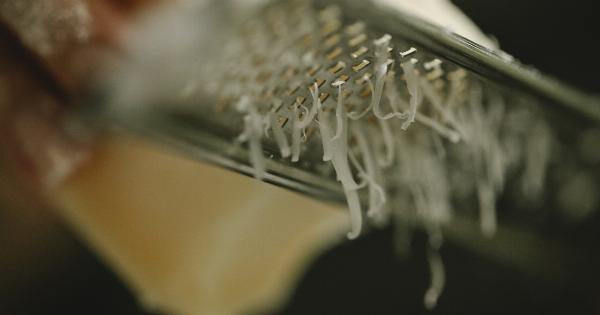Cheese is a beloved food that has been enjoyed for centuries. It comes in a variety of flavors, textures, and types, making it a versatile addition to many dishes. However, not all cheeses are created equal when it comes to health benefits.
Some types of cheese can be high in fat and salt, while others can be a good source of protein and calcium.
1. Feta Cheese
Feta cheese is a traditional Greek cheese that is made from sheep and goat milk. It has a crumbly texture and tangy flavor that goes well with many dishes. Feta cheese is a good source of protein and calcium.
It is also lower in fat and calories compared to other types of cheese. Feta cheese is also a good source of probiotics, which can help improve gut health.
2. Cottage Cheese
Cottage cheese is a type of cheese that is made from the curds of cow’s milk. It has a creamy texture and mild flavor. Cottage cheese is a good source of protein and low in calories and fat. It is also a good source of calcium and vitamin B12.
Cottage cheese can be used in many dishes, such as salads, smoothies, and dips.
3. Parmesan Cheese
Parmesan cheese is a hard, aged cheese that is made from cow’s milk. It has a nutty flavor and is often used as a topping for pasta dishes. Parmesan cheese is a good source of protein and calcium.
It is also low in fat compared to other types of cheese. Parmesan cheese is also rich in vitamins and minerals, including vitamin A, vitamin B12, and phosphorus.
4. Ricotta Cheese
Ricotta cheese is a fresh, soft cheese that is made from cow, sheep, or goat milk. It has a mild flavor and a creamy texture. Ricotta cheese is a good source of protein and calcium.
It is also low in fat and calories, making it a good choice for those who are watching their weight. Ricotta cheese can be used in many dishes, such as lasagna, pizza, and desserts.
5. Mozzarella Cheese
Mozzarella cheese is a soft, mild cheese that is made from cow’s milk. It is often used as a topping for pizza and in Italian dishes. Mozzarella cheese is a good source of protein and calcium.
It is also lower in fat and calories compared to other types of cheese. Mozzarella cheese is also a good source of vitamin B12 and phosphorus.
6. Cheddar Cheese
Cheddar cheese is a hard, aged cheese that is made from cow’s milk. It has a sharp flavor and is often used in sandwiches and on crackers. Cheddar cheese is a good source of protein and calcium. However, it is also high in fat and calories.
It is best to consume cheddar cheese in moderation.
7. Swiss Cheese
Swiss cheese is a hard, nutty cheese that is made from cow’s milk. It is often used in sandwiches and on burgers. Swiss cheese is a good source of protein and calcium. It is also lower in fat and calories compared to other types of cheese.
Swiss cheese is also a good source of vitamin A and vitamin B12.
8. Goat Cheese
Goat cheese is a fresh, tangy cheese that is made from goat milk. It has a creamy texture and can be used in many dishes, such as salads and pasta dishes. Goat cheese is a good source of protein and calcium.
It is also lower in fat and calories compared to other types of cheese. Goat cheese is also a good source of vitamin A and phosphorus.
9. Blue Cheese
Blue cheese is a type of cheese that is made from cow, sheep, or goat milk. It has a sharp, tangy flavor and is often used in salads and on burgers. Blue cheese is a good source of protein and calcium. However, it is also high in fat and calories.
It is best to consume blue cheese in moderation.
10. Cottage Cheese with Live Cultures
Cottage cheese with live cultures is a type of cottage cheese that contains live, active bacteria. These bacteria can help improve gut health and boost the immune system. Cottage cheese with live cultures is also a good source of protein and calcium.
It is also lower in fat and calories compared to other types of cheese.






























